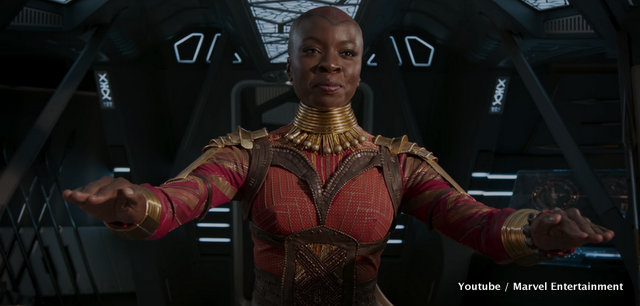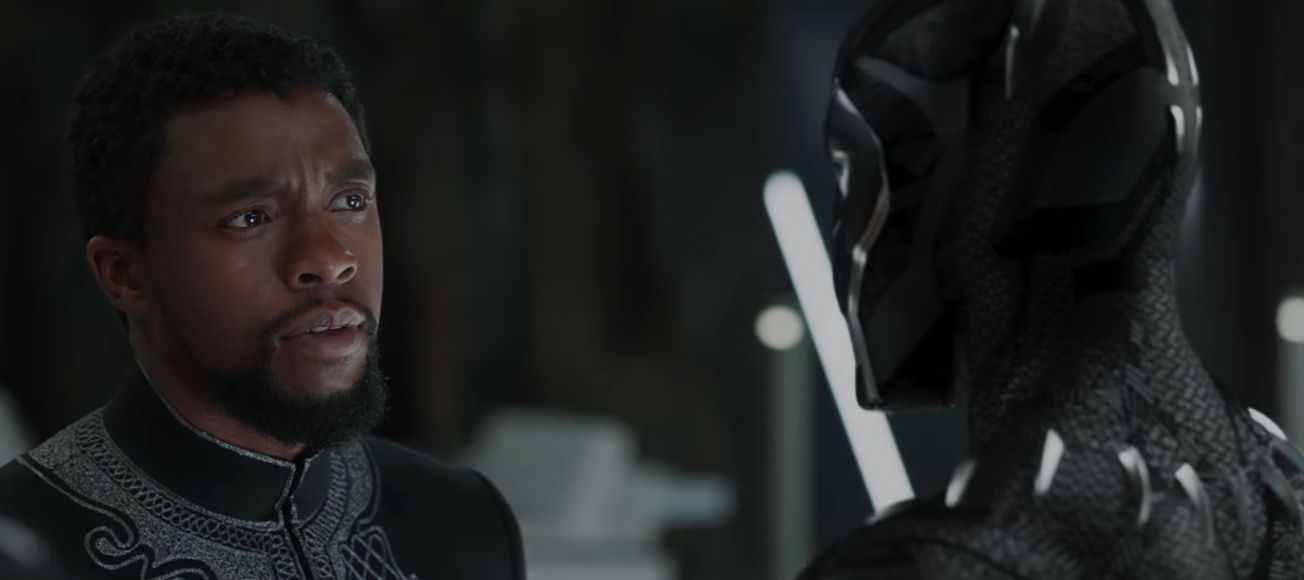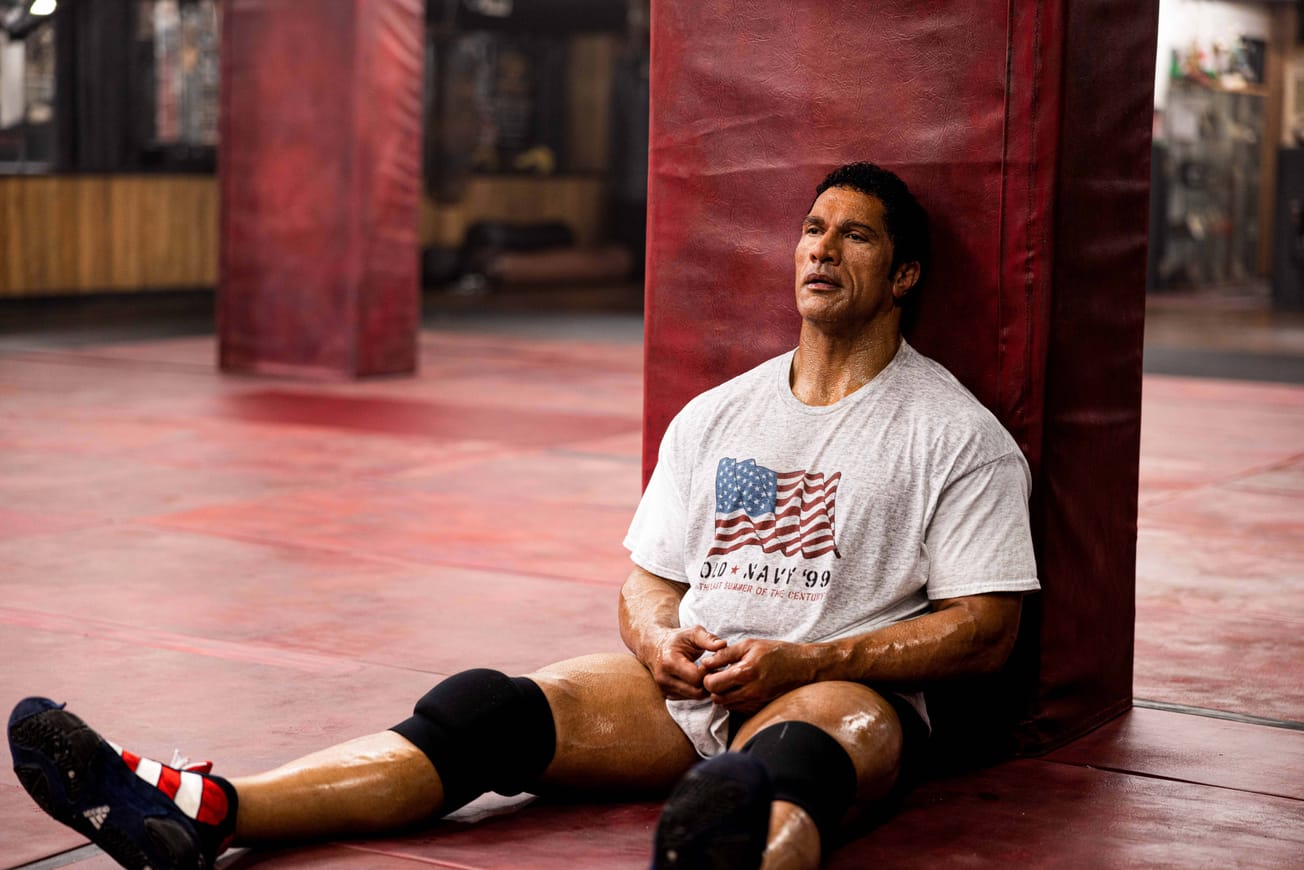Black Panther has quickly become one of the most successful Marvel films to date and we couldn't wait to delve into it.
The Black Panther lives and he is more enticing than ever. After years of waiting, T’Challa has come to the film screen, to debut his own story about his past and present. More importantly, the importance and the responsibility of being an African king. Yet, Black Panther to its audience does not only portray a comic book superhero, but also a historical development in the film industry.
Black Panther immediately delves into action, through debuting his fighting skills to when he defends his title, in the combat of challenges in the film. Chadwick Boseman, who plays T’Challa/Black Panther illustrates not only his physical challenges against his protagonists, but also his mental challenges to overcome and be king. Struggle is a central theme that is more unique to Black Panther amongst other films, within the Marvel Cinematic Universe.
To find one central theme that succeeds within the film is impossible. Acceptance, pride, power are the common themes that exist in all of Marvel’s superhero films. Yet Black Panther is much more persistent to illustrate this, in various possible ways. This could only have been done with such a fantastic cast and production. But also the setting tone of Afrofuturism entices audience to a much more expressive Marvel film.
Wakanda's vibrant colours in the shots and the setting itself, describe Africa's beauty.
Through Afrofuturism, Black Panther illustrates an African nation that would thrive without colonialism. Furthermore, Wakanda is the fictional African nation that celebrates its tradition and advancement and as a result, Wakanda must portray itself to the West as a third country. The resource of vibranium that powers their wealth may not be unfamiliar to Marvel fans. It has been mentioned in Captain America, Iron Man and the existing Avengers films.
The choice for the cast and director was perfect. Ryan Coogler (Creed, Fruitvale Station) was a wise choice for the film. Coogler usually engages deeply with his protagonist’s character development, through the challenges that they face. Despite only directing two films, Coogler made this film truly embedded with such political undertones of struggle and order. Even so, this film made him look like he had years of experience. Nevertheless, the political messages through Black Panther were perfectly illustrated. Africa’s greatness without colonialism; a country that is united.
Congrats to the entire #blackpanther team! Because of you, young people will finally see superheroes that look like them on the big screen. I loved this movie and I know it will inspire people of all backgrounds to dig deep and find the courage to be heroes of their own stories.
— Michelle Obama (@MichelleObama) February 19, 2018
Wakanda’s vibrant colours in the shots and the setting itself, describe Africa’s beauty that the Western power either choose to ignore or exploit or both. It is especially illustrated through the cast. The tribes of Wakanda are something that African watchers are not alien to and this was no mistake. Africa’s pride was meant to be shown in a positive and thriving light, not the negative stereotype that Hollywood often portrays; poor, undeveloped, and in need of “the white saviour”. In, fact, this was where the humour succeeded in, as white people trying to take control of the situation.
The scene stealers are the black women that dominate. The Dora Milaje, Nakia, Shuri are all powerful women who do not define themselves through men. Instead, they are the ones that support T’Challa and devote themselves endlessly to Wakanda. Through the main representation of dark black women, it finally challenges the colourism argument, where this specific kind of women are represented for black girls watching. Especially the Dora Milaje, who are the very definition of badass.

Photo by Youtube/Marvel Entertainment
Marvel sometimes struggles to give a good villain to challenge the protagonist. However, this portrayal of the central antagonist, was exceptional. Killmonger, portrayed by Michael B. Jordan, is one of Marvel’s most realistic characters. His ambition is reasonable to remove the white colonialist narrative that still plagues the world in its actions. Yet, as a man who only saw violence, to achieve his goals as the new king, it remains his biggest flaw. His ambition for a revolution to the world, rather promotes a colonial mentality. Vibranium is the resource which must be used against the world, rather than for it to be shared. This was an effect of a tragedy he suffered.
Black Panther is relevant, full package of amazing costumes and actions. But it is also political in its tones about African greatness. But also describes how black women are a full-frontal force, during conflict.
*Photo credit: Youtube / Marvel Entertainment









